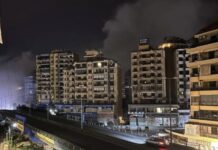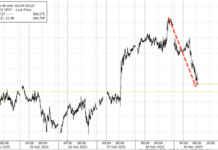The past year was difficult for India after the US reconsolidated its influence over de facto military-run Pakistan, Indo-American ties became troubled following an alleged assassination plot as Sino-American ones thawed while Indo-Sino ones remained tense, and the Maldives elected an anti–Indian leader. It was therefore with relief that Bangladeshi Prime Minister Sheikh Hasina won re-election and former Bhutanese Prime Minister Tshering Tobgay returned to office the start of this year.
Both leaders are considered to be close Indian partners and each of their countries plays a very strategic role in India’s regional security policy. A friendly Bangladesh keeps religious fundamentalists in check and doesn’t tolerate the presence of Delhi-designated terrorists-separatists on its territory, while a friendly Bhutan also has zero tolerance for such groups and is less amenable to any border deal with China that could cause problems for India. Some brief elaboration is required to bring unaware readers up to speed.
“Russia Warned That The US Might Orchestrate A Color Revolution In Bangladesh” as punishment for its refusal to follow the West’s sanctions regime against that country, but the main motivation would likely be to turn that country into an “anti-India” for coercing policy concessions from Delhi. The boycotting opposition’s theoretical return to power could turn Bangladesh back into a haven for religious fundamentalists and Delhi-designated terrorists-separatists as part of a US containment plot.
From there, America could have leveraged its newfound influence over both Pakistan and Bangladesh to create serious problems for Indian security with the intent of having that country distance itself from Russia and agree to unfavorable free trade terms in exchange for pressure relief. Furthermore, maximum pressure could have been imposed in the run-up to India’s national elections this spring in an attempt to give a boost to the opposition so as to increase the odds of the planned concessions being implemented.
As for Bhutan, the outgoing Prime Minister dispatched his top diplomat to Beijing last fall for talks on negotiating a peaceful resolution to their long-running border disputes, which resulted in an unprecedented cooperation agreement with China whom Thimphu has yet to officially recognize. “Chinese Control Over Disputed Bhutanese Territory Could Imperil India’s National Security” if the Doklam Plateau, which overlooks the narrow “Chicken’s Neck” to Northeast India, is ceded to Beijing.
The building of more Chinese settlements in other disputed territories might not be aimed at creating facts on the ground ahead of those areas’ possible cession, but could be part of a clever arrangement whereby China might swap those territories for Doklam as part of a compromise. After all, these Tibetan-bordering settlements aren’t anywhere near as strategically important in the grand sense as that plateau, and Bhutan couldn’t cede the latter without a swap lest it look like it’s “caving into China”.
The outcome of the Bangladeshi and Bhutanese elections therefore gave India strategic breathing space by reducing the odds of both countries’ worst-case scenarios from Delhi’s perspective transpiring. Prime Minister Hasina might still come under Color Revolution pressure, but she’s expected to hold her own and prevent any forcible regime change. As for returning Prime Minister Tobgay, he might put the brakes on the Bhutanese-Chinese border talks, or at least swear never to cede Doklam no matter what.
Taken together, these latest developments relieve the growing Hybrid War pressure along India’s eastern flank after last spring’s Manipur unrest and the increasing threat of Myanmar’s newly worsened conflict spilling over into its historically volatile Northeastern States. This allows India to focus more on managing problems with China, Pakistan and the Maldives, and the US along the corresponding northern, western, and bilateral fronts, which would have been much more difficult to do if the eastern one wasn’t secured.





















